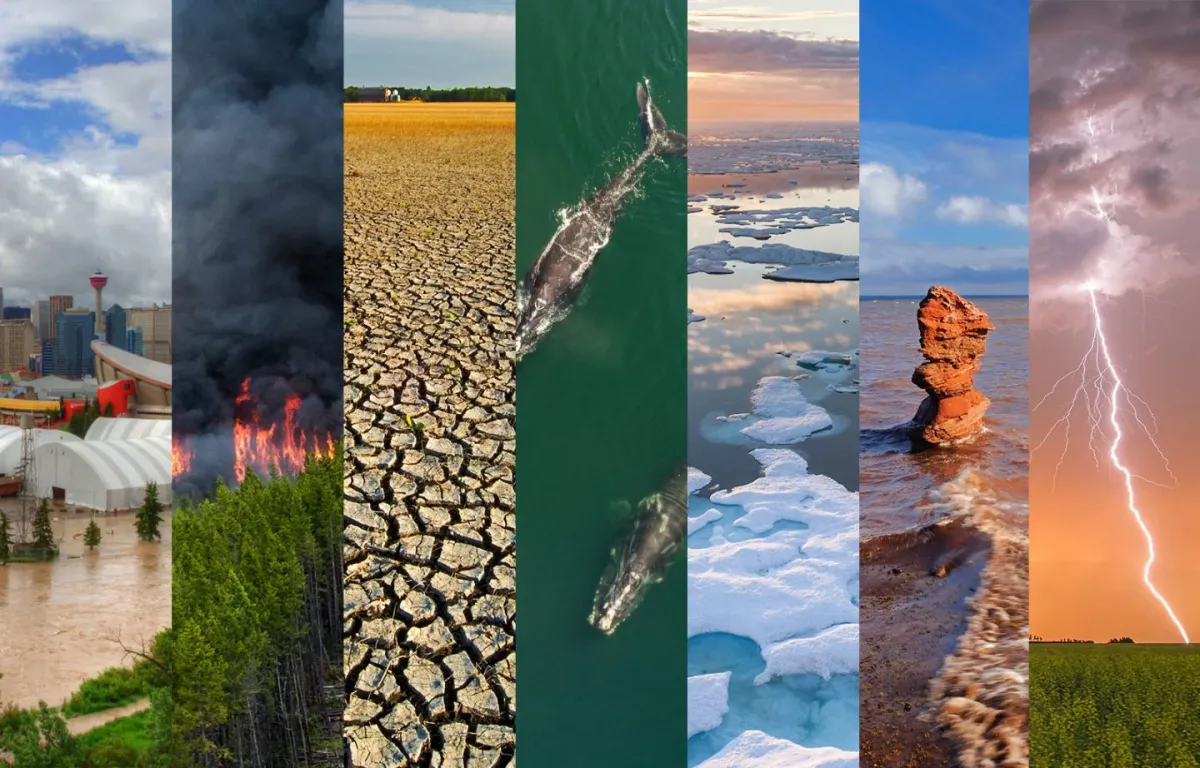Confronting Climate Change: Global Efforts and Individual Solutions

Climate change has become one of the most pressing challenges of our time, reshaping lives and economies worldwide. From devastating natural disasters to the long-term impacts of rising temperatures, the evidence of climate change’s toll is undeniable. Understanding the severity of this crisis and embracing actionable solutions—both at an individual and global level—is essential for a sustainable future.
The Growing Impact of Climate Change
Recent years have been marked by an alarming increase in natural disasters fueled by climate change. These events underscore the urgency of taking action:
- Heatwaves: In 2023, Europe experienced one of its hottest summers, with temperatures soaring, leading to over 47,000 heat-related deaths.
- Floods: Pakistan endured catastrophic floods in 2022, affecting 33 million people and and killed at least 1,739 from the beginning of monsoon season in mid-June 2022 to Nov. 18, 2022.
- Wildfires: Canada faced record-breaking wildfires in 2023, burning over 15 million hectares of land, disrupting ecosystems, and displacing thousands of residents.
- Hurricanes: The United States witnessed Hurricane Ian in 2022, a Category 4 storm that caused damages of $112 billion and displaced millions.
These figures highlight the devastating consequences of a warming planet, disproportionately impacting vulnerable communities and deepening global inequalities.
Global Responsibility: The Role of Major Emitters
To combat climate change effectively, both developed and developing nations must take responsibility for reducing greenhouse gas emissions. Countries like the United States and China, which together account for over 40% of global CO2 emissions, play a critical role.
- The U.S. recently rejoined the Paris Agreement, committing to reducing emissions by 50-52% by 2030 compared to 2005 levels.
- China is accelerating its shift to renewable energy, aiming to achieve peak emissions before 2030 and carbon neutrality by 2060.
These commitments must translate into tangible action, with investments in clean energy, stricter environmental regulations, and international cooperation.
Individual Action: Reducing Your Carbon Footprint
While systemic change is essential, individual efforts also contribute significantly to combating climate change. Small lifestyle changes can collectively make a big difference:
- Transportation: Opt for walking, biking, or public transport instead of driving.
- Water Conservation: Shorten shower times to conserve water and reduce energy usage.
- Reusable Products: Switch to reusable mugs, bags, and bottles to minimize waste.
- Energy Efficiency: Use energy-efficient appliances and unplug devices when not in use.
The Peace Network: Supporting Disaster-Stricken Communities
The Peace Network is committed to addressing the immediate consequences of climate change by supporting communities affected by natural disasters. Through its blockchain-enabled model, the organization ensures transparent and efficient distribution of aid, including:
- Emergency Supplies: Food, clean water, and medical kits.
- Reconstruction Support: Tools and materials for rebuilding homes and infrastructure.
- Sustainable Solutions: Promoting renewable energy and environmentally friendly practices in disaster recovery efforts.
The Blockchain Advantage: Crypto’s Role in a Changing World
In addition to its humanitarian efforts, the Peace Network leverages blockchain technology to innovate solutions for global challenges. The rise of Bitcoin (BTC) and Ethereum (ETH) exchange-traded funds (ETFs) for institutional investors has brought renewed attention to the cryptocurrency market. These developments signify a growing acceptance of blockchain’s potential to transform financial systems.
Recent milestones, such as Bitcoin surpassing $100,000, mark a pivotal moment for the market. This achievement not only signals confidence in decentralized currencies but also highlights opportunities for projects like the Peace Network to thrive. By integrating blockchain into its operations, the Peace Network ensures efficient, transparent, and secure distribution of resources, demonstrating the technology’s potential to create lasting impact.
The crypto market’s uptrend presents a promising future for blockchain-based initiatives, fostering innovation and enabling broader participation in global solutions. As cryptocurrencies continue to gain traction, the synergy between financial growth and humanitarian efforts will pave the way for a more equitable and resilient world.
A Call to Action
The fight against climate change requires a united front, blending global policies with grassroots efforts. As individuals, adopting sustainable habits can inspire change in our communities. Simultaneously, initiatives like the Peace Network demonstrate how technology and innovation can address climate-related challenges and alleviate suffering.
By working together, we can mitigate the effects of climate change, safeguard the planet, and build a future where every community thrives.

